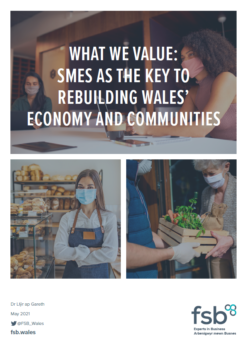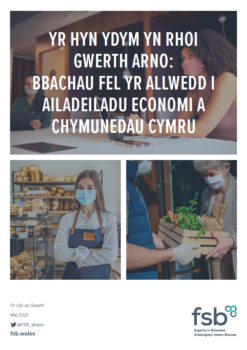Introduction
The Covid-19 pandemic has made us all assess what we value most.
It has led us to redefine our view of what key work is, what services, goods, and support systems we and our loved ones rely upon. It has also highlighted anew the importance of basic security we take for granted to allow us the ability and time to do all things in life that we want to do.
Within the economy, it has exposed the fragility of our systems and reinforced the need to ensure resilience and supply chains. It has proven, too, how we have all been able to adapt to life as restrictions have taken effect.
As individuals and as a society, the pandemic has affected our health and wellbeing in all its forms in a way that has never been seen before in our lifetimes.
To understand how this had shaped small businesses FSB Wales undertook an unprecedented level of engagement with business owners through the 2020 campaign Our Business is Wales alongside commissioning a comprehensive survey from September to November 2020. This survey was shaped with an eye to the future, and to shape our agenda for the 2021–26 Senedd term. As such, this agenda is driven by the priorities and motivations of thousands of business owners across Wales.
Small businesses in the community
The levels in which small businesses add value to their local community are many and varied, including:
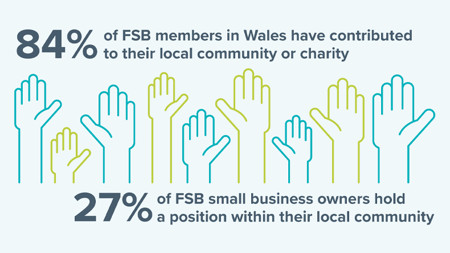
Responding to community needs
Through the SWARM initiative, PPE and equipment was sourced for the NHS through local businesses. See the case study below for more information.
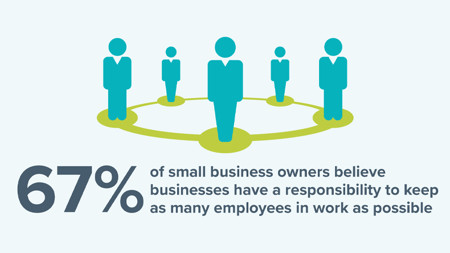
Keeping the community employed
‘Neges’ was a food parcel delivery service led by Dylan’s Restaurant and Menter Môn, with the support of several partners including the Food Technology Centre, Gwynedd Council and Anglesey County Council in response to the pandemic. Over 14,500 food parcels were distributed from April to the end of July 2020 featuring items from local small and micro businesses this initiative allowed businesses to keep staff working and avoid placing them on furlough
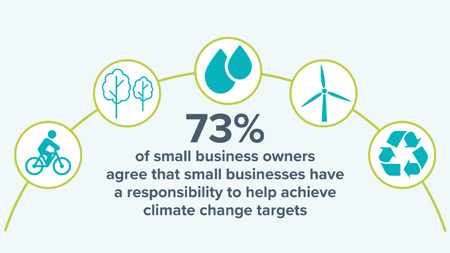
Supporting the environment
In a question for this report’s survey, 79% supported the ‘polluter pays’ principle, indicating that this environmental responsibility is seen as more than skin deep and is understood within taxation. 88% agreed that ‘the government should use tax breaks to help create incentives for growth and investment’. However, only 24% feel they ‘know enough’ about Welsh Government policy on the environment.
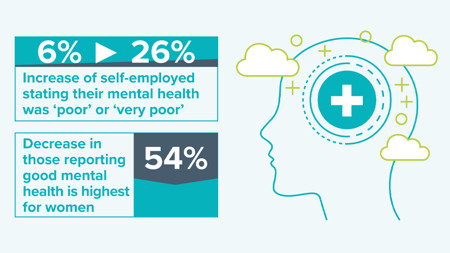
Mental Health – Where small employers need support too
There has – rightly – been a focus on mental health in the workforce during the pandemic. In conversations with FSB members over the course of the last year, the impact on employees has been consistently stated as an area of concern – to whom employers feel an obligation. It is also important to note the strain on those employers who manage those employees while also facing the wider strain on their livelihood and families.
Case Study: Helping Out Community Health needs
As was widely reported as the Covid restrictions came into force, there was a shortage in PPE and other materials for the NHS. The dependence on supply chains which were largely from China and based on cost was a large part of this.
Hywel Dda Health Board faced these challenges by focusing on procuring from local suppliers. They utilised the South Wales Additive Rapid Manufacturing (‘SWARM’) originally set up by a loose network of businesses with Swansea University, who then came together to:
- coordinate local PPE production
- ensuring the standards were up to NHS stringent standards,
- provided coaching and upskilling of manufacturers, and proactive help to reach standard
SWARM issued a call to action, including across social media, to ask for help in producing materials for their Local Health Board. As a result much equipment of fairly stringent and complex standard was sourced locally, as well as simpler things such as furniture.
Opening up demand in Hywel Dda led to local businesses filling substantial gaps – due to the crisis, many of these SMEs repurposed their manufacturing skills to do so. Support through the peer-to-peer networks helped bring products to strict standards, but also provided upskilling that could then be used in future.
This illustrates that opening procurement demand means that it often can be filled – in this case it was often as SMEs felt the need to help their community with lives at stake. The question is how to do this in normal times, and how we can repurpose our systems to help recovery and build wealth and skills in our communities and in SMEs.
Hywel Dda were surprised to see that they found that costs locally were less high than anticipated, and any additional costs could be made up for by the fact they were quicker in turnaround. Local suppliers achieved the prices – or very near the prices – when aimed at. This is unexpected and shows these suppliers can compete at close to price with global chain in many areas. Moreover, the experience points to the need to balance cost, with security of supply chains, as well as wider community benefits.
Bringing it together
While the pandemic has been a once in a generation challenge it also has the potential to be a catalyst to work afresh and build anew.
For Wales, this can and must mean more than merely getting back on track. It is an opportunity to look again at longstanding, complex, and intractable issues that have dogged Wales for many years, including a sluggish economy that has often seemed ever further away from the prosperity of other parts of the UK and Western Europe.
Wales’ small businesses, and the people that run them, have experienced the hardship and uncertainties, the health and economic risks to families and colleagues, as well as to their livelihoods and vocations.
Small business, and their owners who have navigated their way through the devastation to their businesses and communities, deserve the chance and support to rebuild and to grow, and a vision that seeks to provide them opportunities to develop in – and help to develop – a prosperous Welsh economy.


